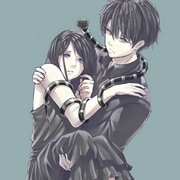I found out, much to my annoyance, that Genevieve planned to make me wear fancy clothes after all. She had arranged for a seamstress to bring options to my room for me to select from.
I frowned at all of them, not exactly happy, which of course Genevieve picked up on.
“I’m aware that you’re accustomed to different clothing,” she began gently. “But there are better options available. Why don’t we look at some of the things the seamstress brought and see if any of them appeal to you?”
I still frowned at them. “They’re too fancy,” I decided. “And the fabric is all wrong. You can’t really move in these. Yes,” I allowed before she could explain, “you can sit and walk and do the fancy lady stuff, but you can’t run or climb trees or do things like that. These fabrics tear too easily and they don’t move with you. I can’t wear these.”
The seamstress tried to intervene on behalf of her dresses. “It’s not appropriate for a ward of the king to wear peasants’ garb. These are better selections.”
I had nothing against her, so I decided to try to explain why I had an issue with this. “I’m sure they’re very excellent choices for most young noblewomen, but I’m not a noblewoman. I’m not a ward by choice and I honestly don’t care if it makes Arthur look bad. He was the one who kidnapped me, why would I care about his image? I want something that is me, and these aren’t me. These are fancy person clothes. I’m not a fancy person.”
The seamstress was baffled by this, but Genevieve took over, selecting her words carefully.
“I know you don’t like Arthur much, but this isn’t all about him. This is about you fitting in here in Camelot, in the castle. You’ll stand out if you wear the, um, commoner clothes.”
I shrugged. “I don’t care.”
Genevieve seemed to be struggling to figure out how to word this. “Well, perhaps they might be better options if you consider that you probably won’t need to run or climb trees here?”
I thought she intended to continue, but her lady-in-waiting, who’d been standing there somewhat impatiently, interrupted.
“You’re too soft on her,” Olwen snapped. She appeared to be a rather no-nonsense and serious sort of woman. I thought she and Johfrit would probably get along quite well. “You are almost an adult,” she told me sternly. “It’s time for you to grow up and behave like one.”
I looked at her for a moment. “And in your definition, behaving like an adult is yielding to pressure to behave in a way other people expect, even if it’s not what you want? You don’t consider standing up for yourself, regardless of societal pressure, to be something adults do?”
“You are behaving like a child,” she emphasized. “You are being selfish. One does not behave this way as an adult. You consider the needs of others, including the king, of course.”
I thought about this. “You know, the only reason your precious king dragged me here is because he considered me a child. Had I been an adult, he would have left me alone. But because he views me as a child, here I am. So I suppose it’s not out of character to then behave like a child.” I gave her an innocent look.
She huffed, clearly not expecting this line of thinking. “You do as you are told,” she ordered.
Ah, no. Not a chance.
“I do not do as I’m told,” I stated, my tone quiet and calm, but with my steel backbone in place. If my mother had instilled one thing in me, it was that I was capable on my own and I wouldn’t let anyone tell me what to do. “I am not a mere vapid creature incapable of my own thought and I do not yield to someone simply because they are older than me, or a man, or even a king. If you want me to change, convince me why. Give me a reason I want to do it, something greater than the reasons I don’t want to, and then we can talk.”
She was even more offended, but Genevieve stepped in, likely aware this was only going downhill without her intervention.
“Olwen, I think I can handle this. Actually, can Merlynn and I have the room for a moment? Perhaps you can take the seamstress to the kitchens, let her select some food to take home with her.”
Olwen did not look pleased about this polite order, and the seamstress, who initially seemed disappointed at not being able to continue watching the fireworks, cheered up immediately at the prospect of some of the royal food. They left us alone and I eyed Genevieve almost suspiciously.
“I know you’re not a fan of Arthur,” she told me seriously. “Of course, I feel differently about that.”
“Well, naturally. You love him and all that.” Love. It could make people do insane things. I knew from my own life that love could make people give up their entire future and change everything.
Genevieve drew back a bit. “Well, yes, but no. I mean,” she seemed almost flustered now, “it’s not quite like – Arthur and I do love each other. But it’s not like what you’re talking about. We’re friends and, well, partners. Arthur and I want the same goal for Logres and we intend to support each other to reach that goal. We each have different roles, but we believe we’re both needed to achieve that goal. Not just the practical side of Arthur defending the kingdom from physical threats and me running the castle, but other things. I can reach people he cannot, and he can reach people I cannot. I can display the power of a queen, something he never can. Things like that. We both have our own roles to play, but the end goal is the same. And we have agreed to work towards that end together. But we’re not – we’re not in love.” She seemed almost embarrassed to admit this. “We have been friends since childhood and we’re well aware of what marriage entails, of course, especially as a king and queen – heirs are important, after all. But we’re friends. Good friends, partners. But not in love, not like that.”
Interesting. And probably smart, to be honest. “Puppy love fades,” I informed her. “Partnerships built on friendship and shared goals are likely to last longer.”
She blinked, surprised. “That’s true, I suppose. Some of the other noblewomen I’ve grown up with think it’s a shame I don’t fawn over him like that and he isn’t romantic with me. But I think it would feel incredibly awkward if we tried. We are genuinely very fond of each other, and we want to see each other happy and well, but to some, the lack of, um, puppy love, as you call it, is disappointing.”
I shrugged. “Few royal or political marriages are for love anyway. At least you already have a foundation of trust and shared goals. Plus, you’ll be less bothered by details such as jealousy, which can cause their own problems.”
She laughed at this. “I hadn’t thought much about that side of things. I mean, Arthur and I had discussed what we felt about us having lovers, but – ” She cut herself off here, shook herself a bit, and gave me a rueful smile.
“I’m sorry, we’ve gotten a bit sidetracked, haven’t we? My point was that I do want to see Arthur’s name respected, and to some extent the behavior of his ward is part of that. But I also understand why you’re not happy here, and while I honestly am not sure whether you or him are correct in the situation, the point is that you both do have valid arguments. He believes he is protecting you, and you believe you don’t need that and his interference is unwanted. I think that argument is something you two will have to resolve on your own, in time.” She paused. “If it matters, I told him not to seek you out for a time. I thought his speaking to you would only anger you and likely result in an exchange of angry words rather than achieving any sort of understanding. I told him to give you time, let you learn more about Camelot and life here before he tries to revisit the issue.
“Which brings us to these.” She motioned to the dresses. “I admit, I can’t see a need for you to run or climb trees here, and I can’t think the fabrics you’re used to are as comfortable to wear as these, because they are coarser, are they not?”
She seemed confused, but she wasn’t wrong about that.
Instead, I shrugged. “That doesn’t bother me. I don’t find that an issue of comfort so much as moving freely.”
Genevieve turned this over in her mind, then seemed to reach a decision. “I won’t argue that you should wear the, um, fancy clothes just because of Arthur, or because you’re living here in the castle. You said to give you reasons that were greater than your own. If the fabrics themselves are not an argument for you, then consider the benefit to you. Not the part about you standing out so much as that nice clothes will sometimes give you access to people and places that others will not.”
She tapped her fingertips together. “You wish to study as a scholar. Now, I can arrange that, and if necessary, Arthur can order them to cooperate. But I can tell you that the scholars will not take you seriously if you are dressed like a peasant. The same is true with many people in the castle. You may face arguments from guards on whether you’re allowed to be in an area, or be shunned by nobles, or have people refuse to speak to you or answer questions because of how you’re dressed. I cannot say it is a good thing,” she admitted almost apologetically, “but it is how the world works. Certain clothes will get you access to some areas and some people. Perhaps we can even say that is true for the commoners’ garb – there are places you would be welcomed while wearing simple clothes that you might not be allowed if wearing noble clothes. So perhaps we can compromise.”
She tapped one of the dresses. “What if we have one dress that is more fancy and formal? For times we might have parties, or perhaps visiting dignitaries. Or our wedding, that is coming soon.”
I raised an eyebrow, about to object, but she anticipated what I was about to say.
“You won’t be required to attend, but you might want to. There’s music, and food of course, and dancing that you’re likely not familiar with. I imagine someone with a mind as curious as yours might be interested in the music, if nothing else, and the instruments. And dignitaries might provide information about other countries or places that you haven’t been. They aren’t likely to speak to someone they view as a servant or, even if they know that you are a ward of the king, someone they imagine cannot behave properly in noble contexts or is educated. They may not give you the chance to prove that you are actually educated and intelligent if you are dressed in a way where they will automatically overlook you. So one dress, only one, but reserved for specific conditions. Then, we also let you keep this,” she motioned to my current clothes. “You mentioned wanting to learn about various metalworking. For such, I would imagine the fine dresses would not be acceptable and would be extremely unpractical, in fact. So we’ll make sure you have one or two options for such activities.”
The “peasant” clothing would also be useful if I wanted to wander around in the town of Camelot without being noticed too much, but I decided against pointing that out. Genevieve probably wouldn’t understand why I would ever want that and might be predisposed to forbid me from doing something as “dangerous” as wandering amongst commoners on my own.
“But for your everyday garb here in the castle, we try something else,” she suggested. “We might have to experiment with this, but we could attempt making clothes in this style,” she pointed to the fancy dresses, “just in fabric you’re more comfortable with and will move more, but dyed to match more traditional clothes for a nobleperson, so it looks like you’re wearing the same as any noblewoman your age. If that doesn’t work and still stands out too much,” she pondered for a moment, “perhaps we can try for a fabric that is cut more like what you’re comfortable with, just in fabrics more appropriate for court. We can create a new style for you if we must, or even borrow from fashion from other countries. We can also try letting you wear noblemen’s clothing. That would certain raise more than a few eyebrows, but as it would still be considered proper garb technically, I think it would confuse some people enough they wouldn’t be sure how to react.”
She seemed almost amused by this concept.
I frowned a bit. “And what about a pouch? You don’t wear them. I, however, like having an option for carrying small things with me.”
“Ah! Actually, we do!” She went over to a table and grabbed something that looked like a small, flatter version of the pouch I was comfortable with, also on a long string. “See, you tie this on under your outer skirt,” she explained, “then there’s a slit in the skirt,” she showed me her own, “and there, you have a pouch. It’s not obvious so it’s easier to hide things, although of course you can’t carry much because it is designed to lay flat under the skirts as much as possible. Will that work?” She looked at me hopefully.












Comments (14)
See all